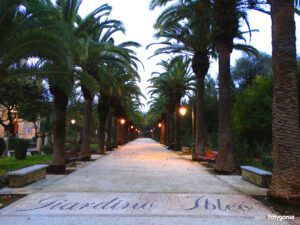The best travel experiences in Italy
What Does “Ragusa” Mean in Italian?
Ragusa is a name that resonates deeply within the cultural, historical, and geographical context of Sicily. As one of the most famous cities in the island, Ragusa is not only known for its stunning Baroque architecture and UNESCO World Heritage sites but also for its rich history, unique dialects, and distinct identity. But what does the name “Ragusa” mean in Italian, and what is its significance both linguistically and historically?
In this article, we will explore the meaning of the name “Ragusa” in Italian, its etymological roots, historical context, and how this name has evolved over centuries. We will also delve into the cultural heritage and fascinating characteristics of Ragusa as a place. Whether you’re considering booking a private tour of the city or arranging a private transfer for your visit, this comprehensive guide will offer valuable insights into Ragusa’s name and identity.
The Etymology of “Ragusa”
Understanding the Name “Ragusa”
The name Ragusa has a historical and etymological basis that traces back to ancient times. The origins of the word itself are believed to stem from several possible sources. Ragusa was likely derived from the Latin word “Rhegion,” an ancient Greek colony founded on the coast of Sicily.
Ancient Greek Influence
The most accepted theory regarding the name Ragusa is its connection to the Greek word “Rhegion” (Ῥηγίον), referring to an ancient settlement founded by the Greeks around the 8th century BC. The Greeks used the term “Rhegion” to describe several towns along the coast of Sicily and Southern Italy, known for their strategic positions. Over time, as these Greek settlements transformed, the name “Rhegion” evolved into its modern form, Ragusa.
Latin and Arab Influence
Throughout history, Ragusa was ruled by various civilizations, including the Romans and Arabs. During Roman times, the town was referred to as “Ragusium”, maintaining a link to its original Greek roots. The Arab presence in Sicily, particularly during the 9th to 11th centuries, left its own mark on the language, further shaping the local dialects and possibly influencing the name’s pronunciation and form.
The Historical Significance of Ragusa
Ragusa’s Role in Ancient Sicily
Ragusa, as a city, has been inhabited since antiquity. Its origins date back to Greek and Roman times, with evidence of settlements dating to the 3rd century BC. Its role in ancient Sicily was substantial, primarily as a trading hub due to its position between the Ionian Sea and the Mediterranean.
The city has a rich cultural heritage, shaped by multiple rulers, including the Romans, Byzantines, and Arabs. These influences have contributed to the modern identity of Ragusa, which blends ancient architecture with a vibrant contemporary culture.
The Great Earthquake and the Birth of Modern Ragusa
One of the most important historical events that shaped Ragusa’s identity was the 1693 earthquake, which devastated much of southeastern Sicily, including the city of Ragusa. After the disaster, the city was rebuilt, and a division was created between Ragusa Superiore (the upper town) and Ragusa Ibla (the historic center). This event also marks a key transition in the city’s architecture, with Ragusa Ibla becoming famous for its Baroque buildings, while Ragusa Superiore became a modern urban hub.
The Linguistic and Cultural Meaning of Ragusa
The Sicilian Dialect and the City’s Identity
The word “Ragusa” not only has historical significance but also reflects the rich cultural fabric of Sicily. The dialects spoken in Ragusa and surrounding areas are an important part of its identity. Sicilian dialects vary significantly from standard Italian, influenced by the island’s diverse historical rulers, including the Greeks, Romans, Arabs, Normans, and Spanish.
The locals often refer to their beloved city as “Ragusa” with a strong pride, as the name represents not only the geographic and historical legacy of the place but also its unique Sicilian culture. For travelers, it’s crucial to understand the nuances of the local language to fully appreciate the hospitality and charm of Ragusa.
Ragusa vs. Ragusa Ibla: Two Identities, One City
Ragusa Superiore: The Modern Side of Ragusa
While the name Ragusa historically referred to the entire city, it is now often used to describe the upper town, Ragusa Superiore. This area of the city is more modern and contemporary, featuring wide avenues, squares, and a vibrant urban atmosphere. It is the heart of commercial activity, offering a contrast to the ancient charm of Ragusa Ibla.
- In Ragusa Superiore, visitors can experience the modern face of Ragusa, from shopping to fine dining and entertainment.
- Key attractions include the Giardini Iblei, a beautiful public park, and several Baroque-style churches.
Ragusa Ibla: The Historic Heart of the City
Ragusa Ibla, on the other hand, represents the city’s rich historical and architectural heritage. The Baroque architecture, winding narrow streets, and ancient churches of Ragusa Ibla are part of what makes it so famous, not just in Sicily but across the globe. Ragusa Ibla was designated a UNESCO World Heritage site due to its exceptional architectural style and historical significance.
When people refer to Ragusa in terms of cultural and historical importance, they are often speaking about Ragusa Ibla, which is an essential destination for anyone wanting to explore the true essence of Sicilian history.
Why Is Ragusa Worth Visiting?
The Beauty of Ragusa’s Baroque Architecture
One of the main reasons that Ragusa stands out in the context of Sicilian tourism is its stunning Baroque architecture, especially in Ragusa Ibla. The city is home to remarkable Baroque churches, including San Giorgio Cathedral, Chiesa di San Giuseppe, and many beautiful palaces. These architectural marvels make Ragusa a must-see destination for lovers of art and history.
The Tranquil Atmosphere and Scenic Views
Whether you’re in Ragusa Superiore or Ragusa Ibla, visitors are treated to beautiful views of the surrounding countryside, hills, and valleys. The city is located in the Hyblean Mountains, offering travelers a peaceful and scenic setting.
Many visitors appreciate the charming atmosphere of Ragusa, which blends the energy of modern urban life with the tranquility of historical streets and ancient landmarks.
How to Explore Ragusa: A Private Tour and Transfer Experience
Why Choose a Private Guide for Your Ragusa Visit?
One of the best ways to explore Ragusa is by booking a private tour with an experienced local guide. A private guide can provide in-depth knowledge of the city’s history, architecture, and culture. They will lead you through the narrow streets of Ragusa Ibla, showing you hidden gems and explaining the significance of each site.
A private guide ensures that your experience is personalized and engaging, making your visit to Ragusa even more memorable.
Comfortable and Convenient Private Transfers
Traveling between Ragusa Superiore and Ragusa Ibla can sometimes be challenging due to the steep hills and narrow streets. For a hassle-free experience, consider booking a private transfer or taxi service. A private van ncc or transfer service will comfortably take you between the two parts of the city, allowing you to focus on enjoying the sights rather than worrying about transportation logistics.
Conclusion: The Meaning of Ragusa and Its Charm
The name Ragusa carries a rich historical, cultural, and linguistic significance. From its Greek and Roman origins to its transformation after the 1693 earthquake, Ragusa has a unique story to tell. Whether you’re wandering through the Baroque streets of Ragusa Ibla or experiencing the modern side of Ragusa Superiore, the name symbolizes a place where history, art, and culture come together in perfect harmony.
To make the most of your visit, don’t miss the opportunity to book a private tour or transfer that will take you on an unforgettable journey through the heart of Ragusa.
Book your Ragusa private tour:
You might also be interested in:
Travel Guide to Ragusa, Sicily
Ragusa, Italy: All You Must Know Before You Go
Ragusa Ibla: The Heart of Sicilian Baroque
Ragusa Chocolate: A Journey Through Tradition and Taste
https://www.tripadvisor.com/Restaurants-g194872-Ragusa_Province_of_Ragusa_Sicily.html
https://en.wikipedia.org/wiki/Ragusa,_Sicily
https://www.viamichelin.com/maps/italy/sicily/ragusa



